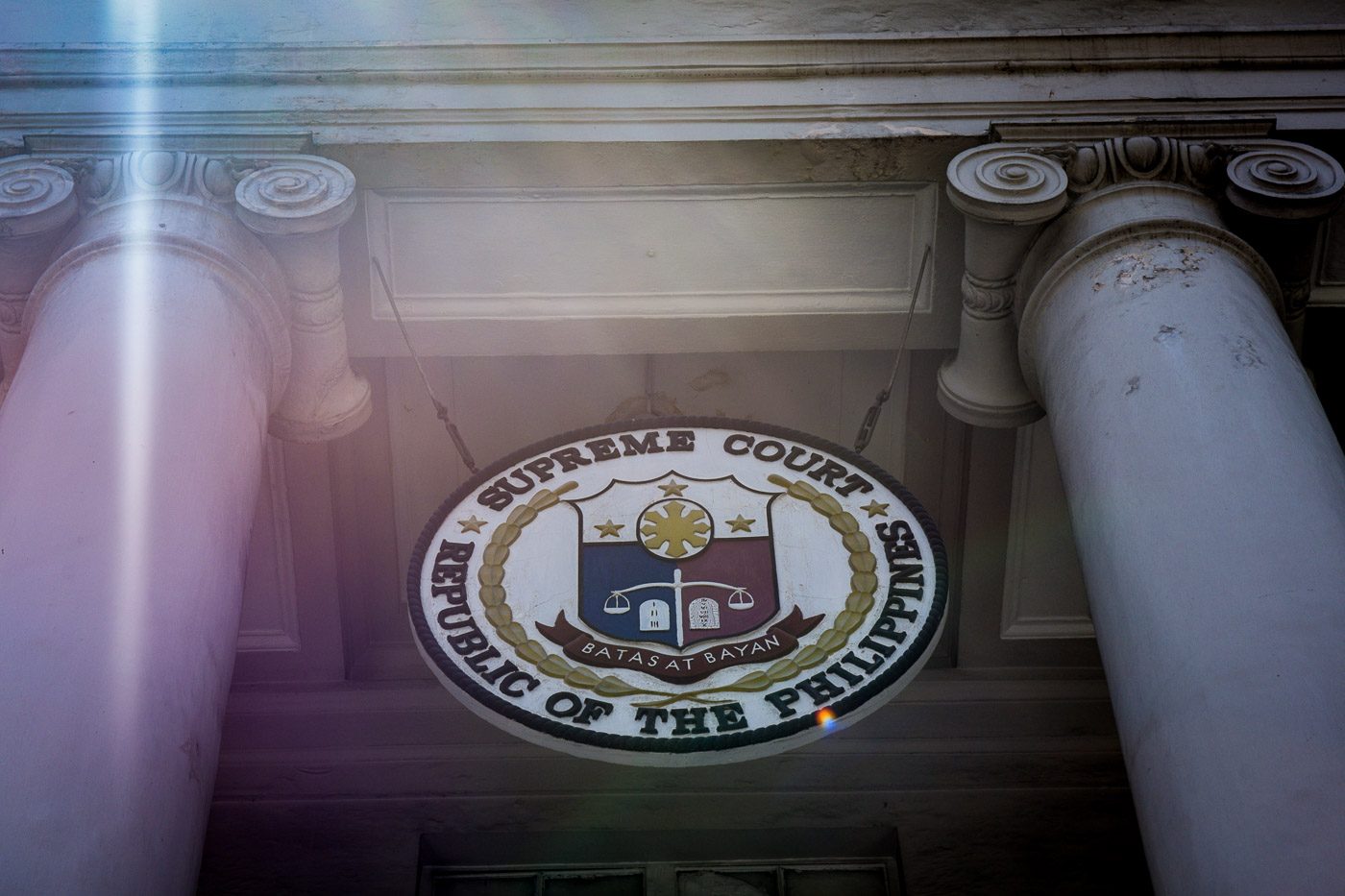SUMMARY
This is AI generated summarization, which may have errors. For context, always refer to the full article.

MANILA, Philippines – The chief justice is primus inter pares or first among equals, but the position is still highly-coveted because of the power and influence that it wields despite being just one vote in a Bench of 15.
A study by Professors Bjorn Dressel (Australian National University) and Tomoo Inoue (Seiki University in Japan) looked at social networks within the Supreme Court, and whether groups there tend to influence voting of the justices.
Using a small sample of 47 mega-political en banc decisions from 1986 to 2015, the study found that to an extent, hierarchical pressure is present in the Court, such that “if a justice knows the Chief Justice personally through university or work affiliation and the Chief Justice votes for the president, the probability that the justice votes with the Chief Justice increases by 20-30 percentage points.”
Talking to Rappler, one of the study’s researchers, lawyer Cristina Bonoan, said there are two networks that come into play when it comes to the closeness of a justice to the Chief Justice – either they belong to the same law school, or came from the same work before the SC.
“There is a slightly higher effect when it comes to work, when you’re in the network of work experience it has a higher effect,” Bonoan said.
Bonoan would be quick to clarify they only looked at a small sample, “a drop in the bucket of all the decisions,” but their study is a first of its kind in the sense that it uses empirical data to “support widespread anecdotal evidence about informal influences on the Supreme Court of the Philippines and raises questions about how independent its bench is.” (READ: By 2022, Supreme Court filled with Duterte appointees)
Voting in favor of the president
Whoever the chief justice will be is going to be a Duterte appointee.
“We found that in the cases we looked at – which is again a small subset of cases – an average justice who was appointed by a certain president was more likely, or has a higher tendency to vote for that sitting administration as compared to a justice who was not appointed by a sitting president,” said Bonoan.
If the appointed chief justice votes in favor of Duterte in future cases, the study shows there is going to be a tendency that the justices in the network of the chief justice will vote in favor of the president as well.
“Taken together, the findings suggest that informal political linkages (presidential pressure) and hierarchical pressures (from the chief justice) are important in animating the voting behavior of individual justices,” says the draft of the study, a copy of which was provided to Rappler by the authors.
Working on that assumption, the importance of a chief justice is magnified especially at a time when the Supreme Court is under intense scrutiny for past decisions that favored Duterte.
Duterte has mostly won in the Supreme Court, losing only when the High Court compelled the government to turn over to them all the documents related to the drug war deaths. That was only one part of the petitions to declare the war on drugs unconstitutional, which remains pending.
If the Supreme Court followed the tradition that whoever is member-in-charge gets to interpellate first (after the chief justice’s introductions) during oral arguments, then Senior Associate Justice Antonio Carpio appears to be handling those petitions and it was him who handed the executive – particularly Solicitor General Jose Calida – their first loss in the Court.
Rappler’s review of key decisions since 2006 also shows that Carpio had a lesser tendency to vote in favor of his appointing president, in fact voting against Gloria Macapagal Arroyo in 3 key cases – Arroyo’s bid to extend her term, attempt to travel abroad, and acquittal from plunder.
Carpio has not voted in favor of Duterte since 2016. Associate Justices Diosdado Peralta and Lucas Bersamin are the ones who have shown a tendency to vote in favor of the executive, while Associate Justice Estela Perlas-Bernabe has been more unpredictable.
Associate Justice Andres Reyes Jr, the 5th nominee for chief justice, has also consistently voted for Duterte since being appointed in 2017.
The Judicial and Bar Council (JBC) will meet November 9 to come up with a short list to send to Duterte. – Rappler.com
Add a comment
How does this make you feel?
There are no comments yet. Add your comment to start the conversation.